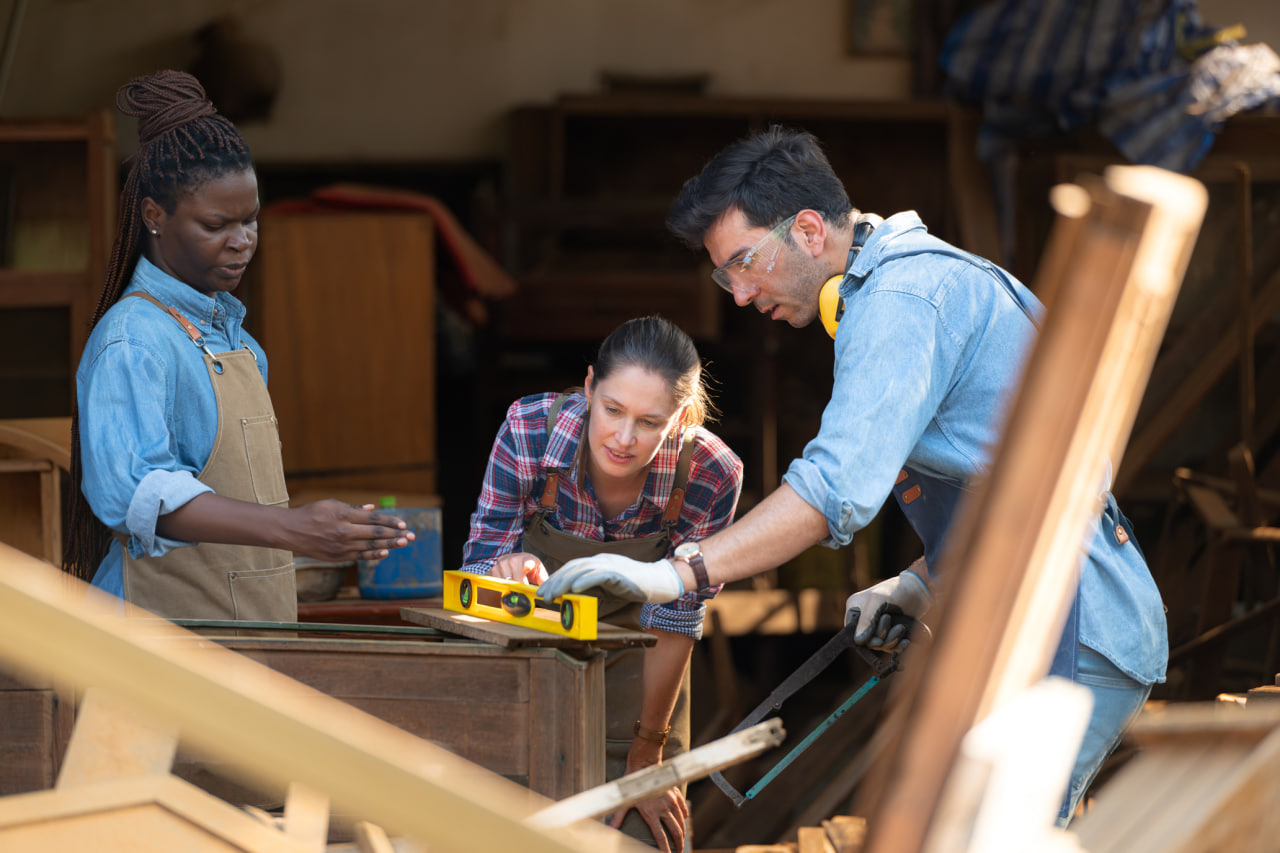Address
304 North Cardinal St.
Dorchester Center, MA 02124
Work Hours
Monday to Friday: 7AM - 7PM
Weekend: 10AM - 5PM

Knowing how to handle basic home repairs is an invaluable skill for every homeowner. While some tasks require professional expertise, understanding essential repair techniques can save time, money, and stress. From fixing leaks to maintaining appliances, having a grasp of fundamental repairs ensures your home stays safe, functional, and comfortable.
Plumbing issues are among the most common problems homeowners face. Simple repairs, when addressed quickly, can prevent major damage.
Fixing Leaks – A dripping faucet or a small pipe leak can waste water and increase bills. Learning to tighten connections, replace washers, and apply plumber’s tape can solve many minor leaks without professional help.
Unclogging Drains – Slow or clogged drains are frequent annoyances. Techniques such as using a plunger, drain snake, or natural remedies like baking soda and vinegar can clear blockages efficiently. Regular maintenance, like removing hair and debris from drains, prevents future clogs.
Maintaining Fixtures – Keeping faucets, showerheads, and valves clean and functional reduces wear and extends their lifespan. Simple cleaning and occasional lubrication can prevent corrosion and buildup.
Basic electrical skills can help address minor problems safely while avoiding unnecessary costs.
Replacing Outlets and Switches – Worn or damaged outlets can be replaced with proper tools, ensuring safety and functionality. Always turn off the power at the breaker before attempting any repair.
Fixing Light Fixtures – Replacing bulbs, repairing loose fixtures, or addressing flickering lights are tasks that can often be done without calling an electrician. Understanding simple wiring and connections helps prevent electrical hazards.
Circuit Maintenance – Resetting tripped breakers, checking for overloaded circuits, and labeling breaker panels ensure your home’s electrical system operates efficiently and safely.
Household appliances are vital for daily life, and basic maintenance prolongs their service life.
Refrigerators and Freezers – Cleaning coils, replacing water filters, and checking seals help maintain energy efficiency and prevent food spoilage.
Washing Machines and Dryers – Regularly inspecting hoses, cleaning lint filters, and checking for unusual noises reduces breakdowns. Understanding simple repairs, such as replacing belts or cleaning drains, can save costly service calls.
Small Appliances – Toasters, blenders, and coffee makers often have minor issues like jammed mechanisms or loose connections that can be fixed at home. Cleaning, tightening screws, or replacing small parts keeps these appliances in good working order.
Woodwork and furniture repairs help maintain comfort and aesthetics in the home.
Tightening Loose Joints – Chairs, tables, and cabinets can wobble over time. Tightening screws, bolts, or using wood glue restores stability.
Scratch and Dent Repairs – Minor scratches and dents can be repaired using wood filler, touch-up markers, or sanding and refinishing.
Hinges and Drawer Maintenance – Lubricating hinges, adjusting drawer tracks, and replacing worn hardware ensures smooth functionality and extends the lifespan of furniture.
A fresh coat of paint or proper wall maintenance keeps your home looking polished and prevents structural damage.
Touch-Ups – Filling small holes and repainting chips protects walls and maintains aesthetics.
Surface Prep – Cleaning, sanding, and priming surfaces before painting ensures a long-lasting finish.
Protective Coatings – Applying sealants or protective coatings on high-traffic areas preserves walls, countertops, and wooden surfaces from wear and tear.
Regular preventive maintenance helps avoid costly repairs and keeps your home safe year-round.
Roof and Gutter Care – Clearing debris, inspecting shingles, and fixing minor leaks prevent water damage.
HVAC and Ventilation Checks – Replacing filters, inspecting ducts, and servicing heating and cooling systems improve efficiency and air quality.
Outdoor Maintenance – Checking fences, gates, and exterior fixtures for damage protects your property and enhances curb appeal.
Having the right tools and knowing how to use them is essential for home repairs. A basic toolkit should include screwdrivers, pliers, wrenches, a hammer, a tape measure, a level, and a drill. Safety gear such as gloves, goggles, and masks protects against accidents.
Understanding how to use each tool effectively ensures that repairs are performed correctly and reduces the risk of injury. Learning to read manuals, following instructions, and starting with small projects builds confidence and skill over time.
By mastering essential home repairs, homeowners can address common issues efficiently, prevent further damage, and maintain a comfortable and functional living environment. These skills empower individuals to take control of their spaces, ensuring that small problems never become major headaches.